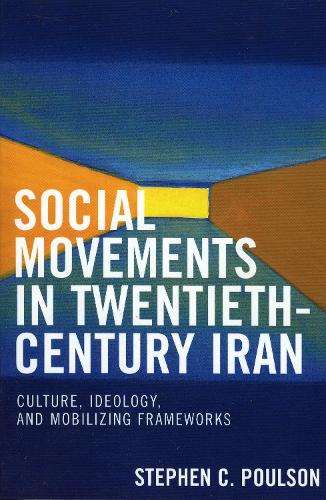
Social Movements in Twentieth-Century Iran: Culture, Ideology, and Mobilizing Frameworks
(Paperback)
Publishing Details
Social Movements in Twentieth-Century Iran: Culture, Ideology, and Mobilizing Frameworks
By (Author) Stephen C. Poulson
Bloomsbury Publishing PLC
Lexington Books
8th September 2006
United States
Classifications
General
Non Fiction
Middle Eastern history
303.48409550904
Physical Properties
Paperback
350
Width 159mm, Height 230mm, Spine 27mm
531g
Description
In this work Stephen C. Poulson, a scholar of collective action and social movements, investigates cycles of social protest in Iran from 1890 to the present era. He illuminates the following social movements: the 1890-1892 Tobacco Movement; the 1906-1909 Constitutional Revolution; two post-World War II movements, the Tudeh (Masses) and the National Front; the 1963 Qom Protest; and the 1978-1979 Iranian Revolution. These movements confronted two primary questions: How should the Iranian state achieve independence in the world and what rights should individual Iranians enjoy in their political and social system Poulson examines the framing of these questions and their answers by various Iranian political actors over time, revealing both continuity and change.
Reviews
Until recently, social movement theory and research focused almost entirely on Western movements. Social Movements in Twentieth-Century Iran shows how one set of movements 'worked' where the state, other structural elements, and culture differed dramatically from the West, even while Western ideas and meddling shaped them. Poulson's highly readable book is important for students of social movements and also for others who want to better understand this country that is so closely related to current global conflicts yet so crudely caricatured in our media. -- Dale W. Wimberly, Virginia Polytechnic Institute and State University
This book is a good review of the history of political protest, social movements, and political Islam in Iran, as well as a good overview of the literature on these subjects. Summing Up: Highly Recommended. All levels/libraries. -- A. Mahdi, Ohio Wesleyan University * Choice Reviews *
Social Movements in Twentieth-Century Iran chronicles the development, use, and modification of various master frames during cycles of protest from 1890 to the present. It is an insightful analysis of major social movements during this period, and particularly of the relevance of culture and framing processes and their intersection. A useful book for those interested in Iranian collective action and the analytic utility of contemporary social movement theorizing and perspectives. -- David A. Snow, University of California, Irvine
Author Bio
Stephen C. Poulson is Visiting Assistant Professor of Sociology and Anthropology at James Madison University.
